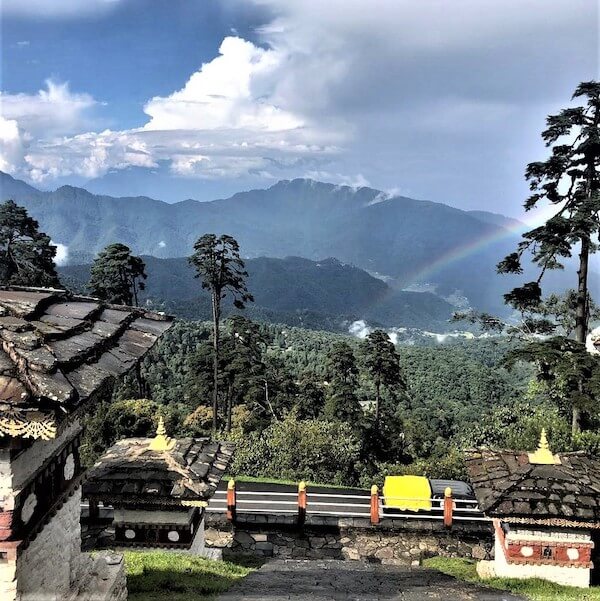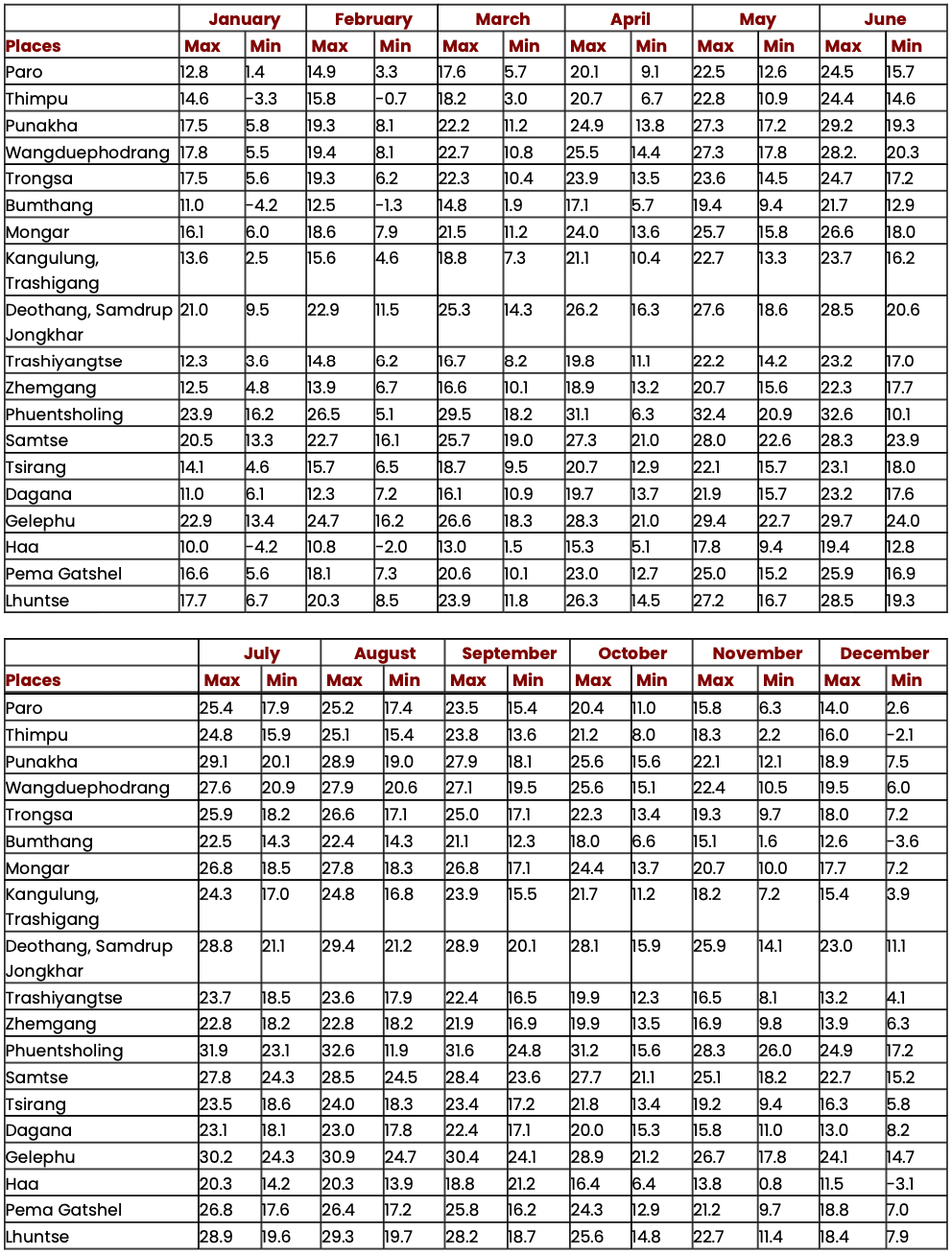 Climate & Weather Conditions in Bhutan
Climate & Weather Conditions in Bhutan
Geographically, Bhutan is a land of dramatic contrast. From the near-tropical southern border with India, steep slopes climb to snow-capped heights of over 24,750 feet / 7,500m at the northern border with Tibet. Consequently, temperatures vary greatly between day and night and at different altitudes, so layered clothing for changing conditions is recommended. In the central valleys, the summer rains are not as heavy as in the south and occur mostly in the late afternoon and at night. From mid-May to the end of September, the weather is warm at night (60-64F/17-18C) and in the day (72-78F/22-26C). In winter, the sky is bright and it is sunny but cold, especially when the sun hides behind the mountains in the mornings and evenings. At night, the temperature falls below zero. Spring and Autumn are very pleasant with warm days and cool nights.
Best Time to Visit Bhutan
Trip to Bhutan can be planned throughout the year but climatically the best months are Mar, April, May, September, October, November. Also, there are several festivals taking place during these months, offering an added attraction. Winter in Bhutan is from mid-November to mid-March and at this time of the year, the climate is dry and sunny for the most part with perfect blue sky, temperatures peaking at around 15c in the daytime and falling below zero at night. The monsoon usually arrives in the last week of June, with light rain falling mainly in the afternoons and evenings.
Average Temperature at various tourist destinations (in Degree Celsius)
